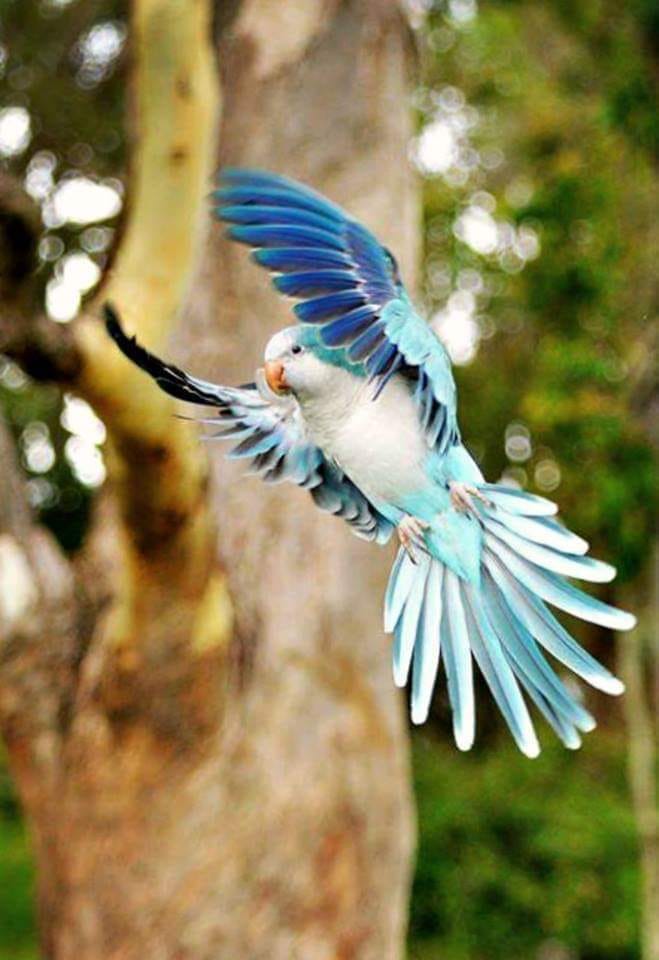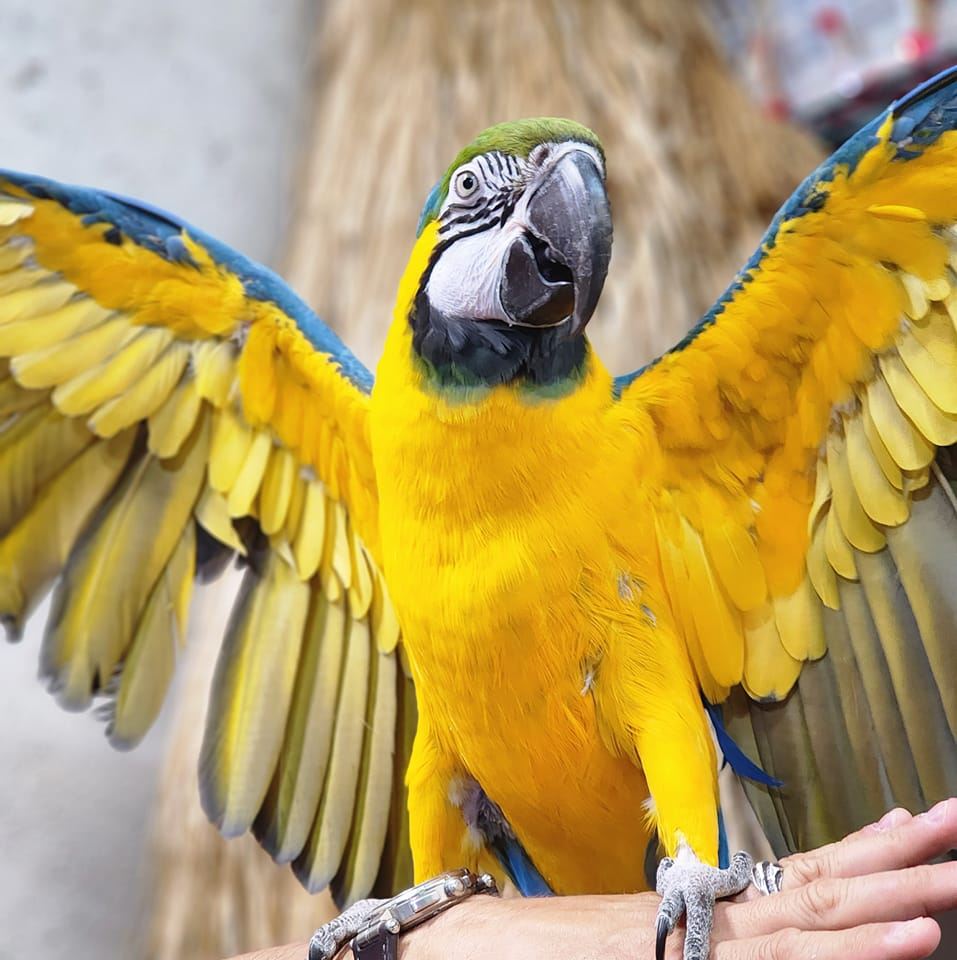Potty Training Your Parrot

We all love many things about our birds but their tendency to let the poop fall where it may isn't one of them. While parrot poop isn't as offensive as cat poop, the cat doesn't usually poop down our backs. There's nothing worse than just getting back from someplace only to notice you were decorated by your bird before you left. And it's not just our clothes; it's the furniture, floors, other pets, etc. that we want to protect. So can we potty train our feather kids? Of course! Our birds have the intelligence to learn to potty in a particular place, such as a specific perch, as well as to go after a cue.
But lets be honest here. Potty training our birds involves a little bit of bird training and a lot of owner training. Parrots have a high metabolism and food passes through their digestive systems quickly. It isn't fair to expect them to "hold it" too long for our convenience. And the smaller the bird the more often they need to go. Small birds may need to go every 10 minutes although the largest ones may be able to hold it over an hour. So the reality is that we are training ourselves to "toilet" our birds. It's up to us to observe our bird carefully and make sure we get him to an appropriate place when he needs to go. We must remember that when an accident does happens the failure is on our part, not the birds. When your a creature meant to fly, what just happens to be below you when you potty isn't something that you that worries you.
Observation is the first step to potty training. You are watching for the behaviors that happen immediately before your parrot poops. Many birds fluff their feathers, squat a little, lift their tails, or make some other change in posture just before they go. You must become aware of the birds need to go in order to move him to the place you've chosen or to give him the verbal cue. If you are having trouble figuring out this body language try taking him out of his cage first thing in the morning and watching. Birds usually don't eliminate overnight, so they may have to take care of "the big one" once they wake up. Some birds, especially young ones who haven't been forced to eliminate in their cages for years, prefer to get outside their cages to go and will like being taken to a potty perch first thing in the morning. (You'll like it too when you see how much easier this makes cage cleaning.) Does your bird already prefer to go in a particular place? Some owners will find their bird prefers to be on a stand or a perch in the cage when he eliminates. These birds may even become fidgety when they are sitting on your shoulder if they need to go. For these birds careful observation may mean very few accidents.
Once you are able to predict when your bird is just about to go it's time for the next step. Now you want to give the bird a cue that he can associate with going potty. A verbal cue such as "go potty", "time to poop", "bombs away", or "do your duty" works well but a hand signal can be used as well. The goal here isn't to have the bird so well trained that he won't go without the cue, but rather to be able to trigger him to go when he hears the cue. By keeping his digestive system emptied out in this way he won't have the need to poop on you or the couch. When your bird eliminates in the proper place or in response to the cue you've given, lavish him with praise. It's not enough that he associate a particular word with pottying, he must also realize that good things happen when the two things occur together. Consistently offering positive reinforcement (something the bird wants that increases the likelihood of the behavior happening again) is the key. Food treats may not be the best in this situation, however, since they will fill up the bird and make him need to go again. Verbal praise, a bit of play, a head scratch, or a few minutes on your shoulder may work best.
Never punish a bird for accidents. Parrots can associate the negative response with pooping in general or, more likely, with you instead of the poop on the couch. This may make him reluctant to spend time with you and increases the chances he will react aggressively towards you. Potty training should be pleasant for your bird, something that allows him earn praise and interact positively with you. If he seems stressed you must re-think your training strategy. Remember that you can't make the bird poop if he doesn't need to. You may also not want to stress your bird by insisting on a potty place he doesn't like. For instance, if you are trying to hold your bird over a trash can, but the bird doesn't feel comfortable in this position it may be best to choose a stand instead. Likewise a bird that doesn't like to eliminate in his cage should be taken out of it first. Set your bird, and yourself, up for success in potty training by working with his natural tendencies, not against them.
